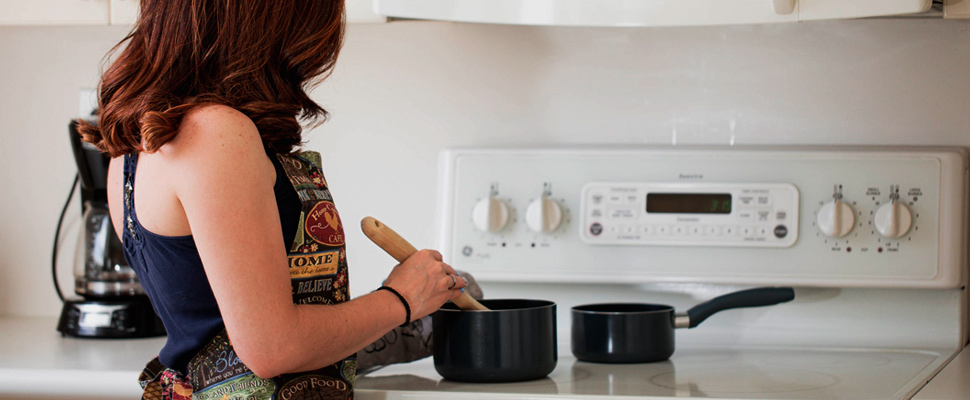Unpaid women’s work is actually a real job
Household and care work has been performed especially by women. This work takes most of the women's time a day, but as it is unpaid, it doesn't let women be economically autonomous.

Woman cooking in the kitchen. / Photo: Pexels – Reference image
The Woman Post | Ana María Betancourt
Listen to this article
Leer en español: El trabajo no remunerado de las mujeres es en realidad un trabajo real
The social construction about maternity and women's role in a traditional family has been positioning the woman as a caretaker and as the only responsible of the children at home, so household and care labors have been taken as a natural women's responsibility.
This construction makes it difficult for women to get inside the labor market and makes her be economically dependent on her husband or the family guy to subsist.
That's why the women's unemployment rate in Colombia is 12.2% but men's rate is 7% according to the 2019 DANE's Labor Market Report. And also that's the reason why women are more associated to informal work than men, the 49.3% of women in the country has an informal work because this kind of works let women have a flexible schedule gaining some money and making home's labors. But informal works affects women´s incomes and job stability.
This is the way that the division of labors reproduces the stereotype of the man as the provider and public subject, and the woman as a subject in the private space who needs male sustenance.
Also read: 7 top moments for women in 2019
According to ECLAC numbers, the women's work time a day is 52.6%, but only 20.2% is paid and the other 32.4% left is unpaid work, household, and care work. Men's work time a day, instead, is 53.9% and 44.1% is paid, only 9.8% it's unpaid.
These numbers show that women's labor insertion difficulty is associated with social constructions and to the division of labors that are socially accepted, but also that this implies the loss of women's economic autonomy.
As UN Women says, "women make a huge economic contribution that fills gaps in services. Why is it unshared and uncounted? Cooking, cleaning, caring for children and the elderly—economies depend on such work, valued at between 10 and 39 percent of GDP. It can contribute more to an economy than manufacturing or commerce."
These works have been unrecognized inside the economic system, but they are a contribution to better economic production and efficiency in the labor market.
As Elsa Gómez, regional consultant of the Panamerican Health Organization, says "the fact that `females´ work it's socially and economically undervalued leads to unrecognize it as a job because it is done at home, and to give less prestige and remuneration to predominantly female occupations and sectors".
To obtain women's economic autonomy, we need to recognize their work socially and economically, but also it's important to encourage men to participate in domestic work in the same proportions as women do.




